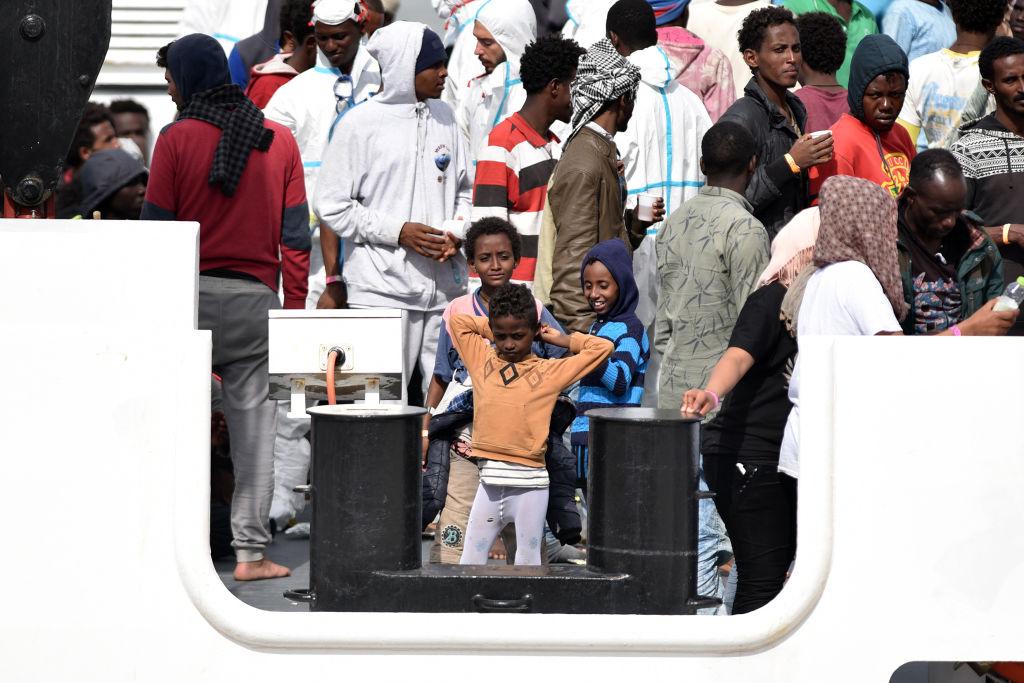‘Complicit in tragedy’: EU leaders urged to stop sending migrants back to Libya
'EU countries are making the Mediterranean a watery graveyard as a matter of deliberate policy'

Your support helps us to tell the story
From reproductive rights to climate change to Big Tech, The Independent is on the ground when the story is developing. Whether it's investigating the financials of Elon Musk's pro-Trump PAC or producing our latest documentary, 'The A Word', which shines a light on the American women fighting for reproductive rights, we know how important it is to parse out the facts from the messaging.
At such a critical moment in US history, we need reporters on the ground. Your donation allows us to keep sending journalists to speak to both sides of the story.
The Independent is trusted by Americans across the entire political spectrum. And unlike many other quality news outlets, we choose not to lock Americans out of our reporting and analysis with paywalls. We believe quality journalism should be available to everyone, paid for by those who can afford it.
Your support makes all the difference.European Union leaders are "making the Mediterranean a watery graveyard as a matter of deliberate policy" with a deal that makes Libya responsible for migrants trying to cross the sea into the continent, a group of more than 50 organisations has claimed.
Oxfam, Human Rights Watch and Médecins Sans Frontières were among the signatories to a letter which claimed they had "allowed themselves to become complicit in the tragedy unfolding before their eyes”.
Under the deal, Italy and the EU agreed to provide the Libyan coastguard with money and technical support, in exchange for them stopping migrants trying to reach Europe from Libya.
The organisations urged leaders to end the return of migrants to Libya, support search and rescue operations and adopt timely and regular disembarking arrangements.
At least 5,300 migrants have died since the deal – described as “inhuman” by the United Nations – was agreed in February 2017, with thousands more currently suffering in Libyan detention camps, Oxfam said.
“EU countries are making the Mediterranean a watery graveyard as a matter of deliberate policy,” said Oxfam’s EU migration policy advisor, Raphael Shilhav.
The joint letter states: “For over six months, European governments have tried – and failed – to agree on a system that would allow survivors to be disembarked safely when they reach a European shore.”
It accuses EU governments of “engaging in painful, drawn-out debates” about where ships can disembark and which countries should host those onboard, while people are left stranded at sea, often for weeks on end.
“They must allow search and rescue ships to dock in their ports, disembark rescued people, and return to sea to save people’s lives, in line with international law,” said Mr Shilhav. “All attempts to prevent their work will inevitably lead to more deaths and run counter to Europe’s humanitarian values,” it says.
The groups also stressed the danger faced by the thousands of people detained in Libya. It says those who are forcibly returned are not only likely to be detained arbitrarily, but “abused, tortured or sold into slavery”.
It is thought that almost 6,500 migrants are currently being held in official detention sites, which the United Nations has warned can be run by human traffickers, despite the EU’s commitment to take a hard line on people smuggling.
Unofficial centres, some of which are run by armed groups, are home to many more people.
Moussa, a 17-year-old boy from Mali told Oxfam that he was intercepted by the Libyan coastguard and brought to a detention centre in Tripoli.
He said: “There were many people in the prison. They asked me for more money, but I didn’t have any left. They beat me on the soles of my feet, my calves and my knees, but I kept saying that I couldn’t contact anyone because I had no family left in Mali.
“I saw a young Gambian boy beaten to death before my eyes because he dared to rebel and answer back to them.”
Join our commenting forum
Join thought-provoking conversations, follow other Independent readers and see their replies
Comments